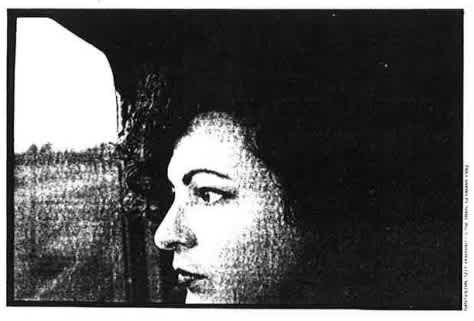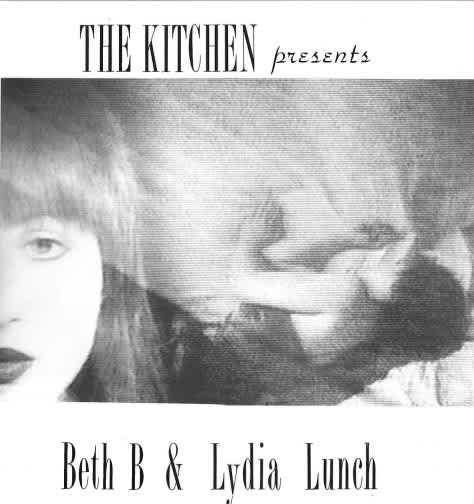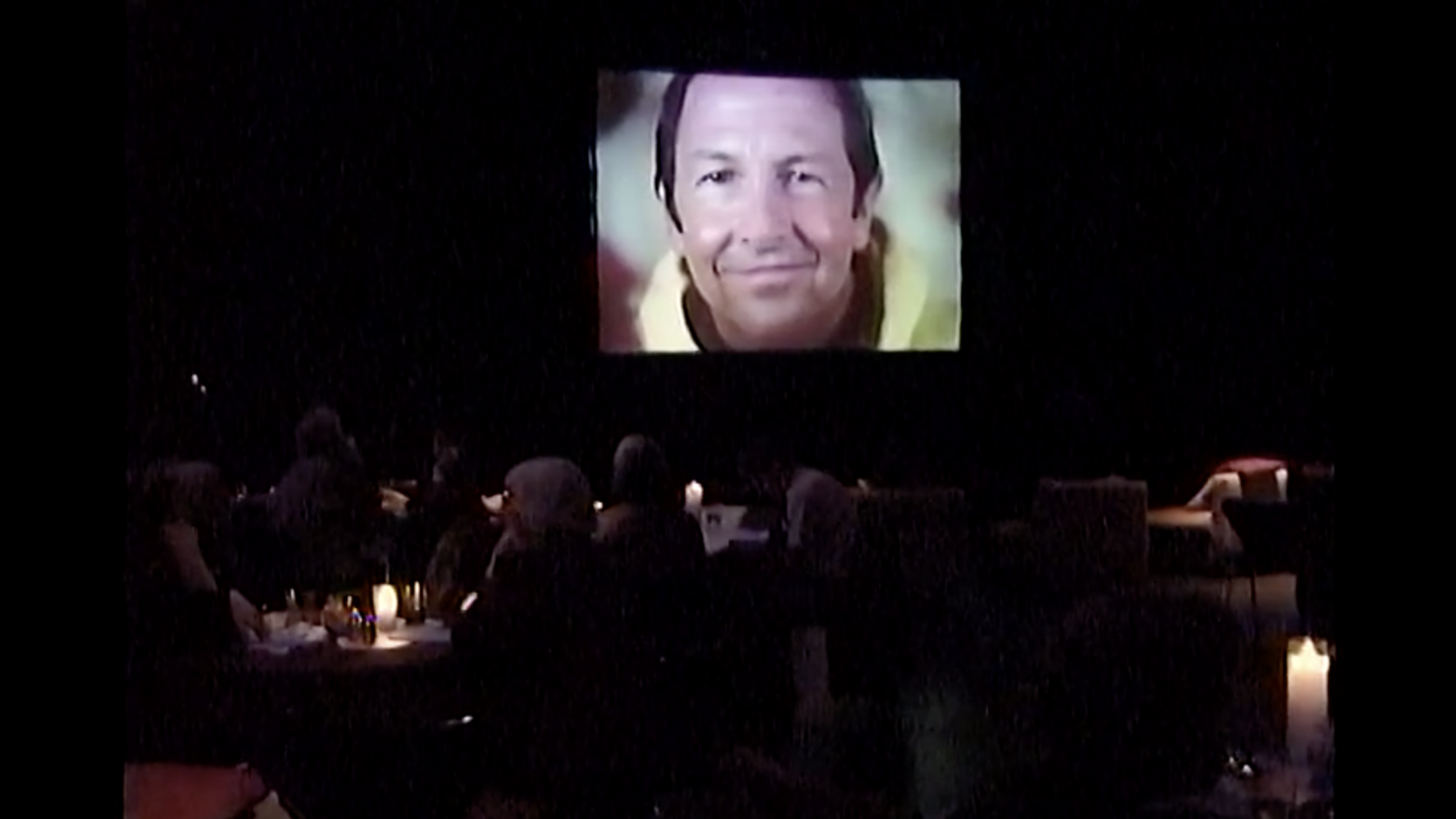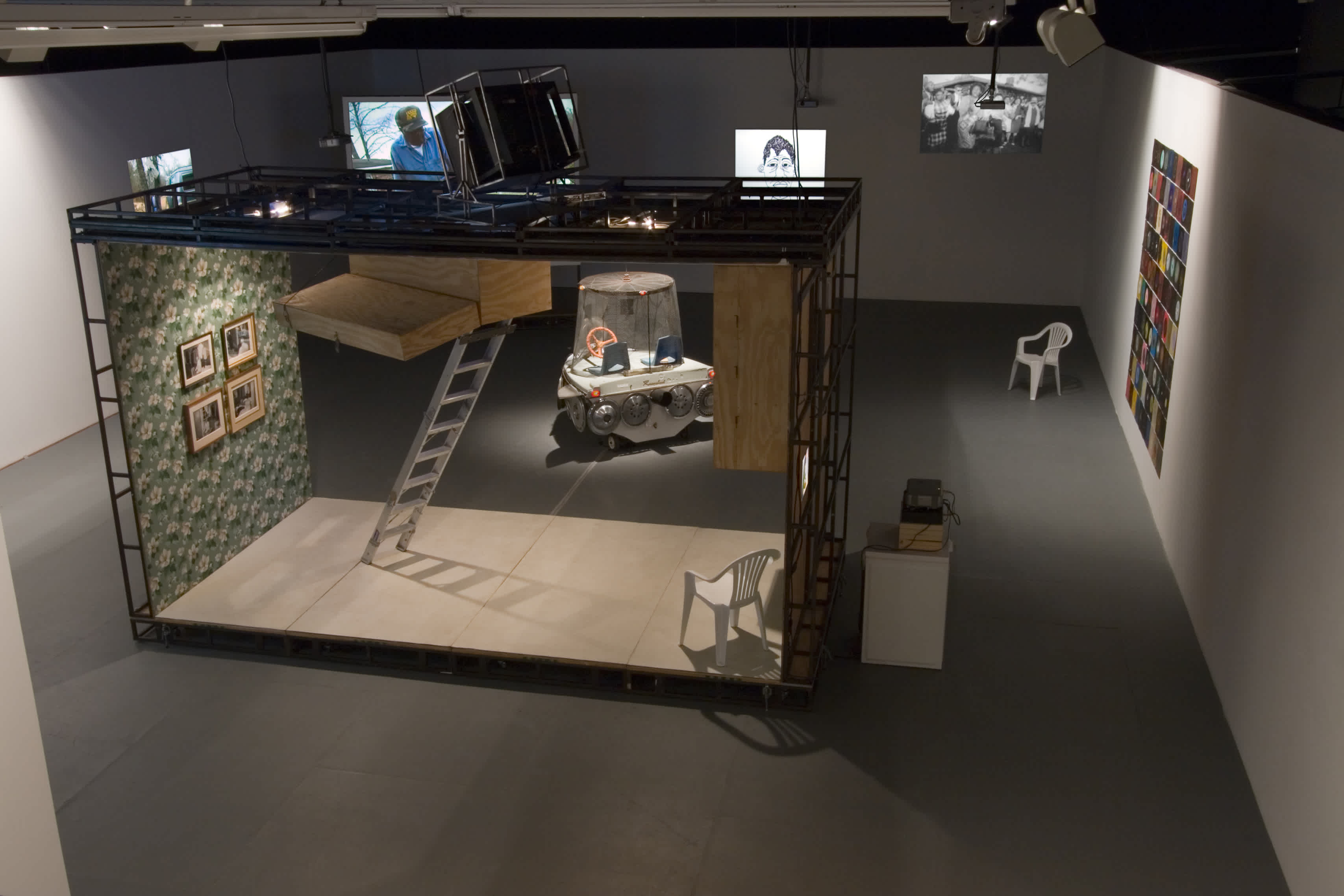
Credits:
Mary Oleary, Winter/Spring 2018 Curatorial Intern
May 15, 2018
Last month, The Kitchen was thrilled to celebrate artists Nan Goldin and Lydia Lunch at our 2018 Spring Gala. During the late ‘80s and early ‘90s, icons Goldin and Lunch were vanguards of post-punk New York. Both women have presented their work at The Kitchen throughout the years, consistently returning to premiere new works that went on to exemplify their careers. Goldin’s portraiture of her close-knit circle of friends in New York became emblematic of her generation’s grappling with the social issues of the time, from the epidemic of drug addiction to the AIDS crisis. Lunch is revered as a radical progenitor of No Wave music, fronting the influential Teenage Jesus and the Jerks and collaborating with acts like JG Thirlwell, Birthday Party, and Sonic Youth. Lunch has a broad artistic practice, also working in film, visual art, writing, and spoken-word. Goldin and Lunch have also collaborated on numerous occasions. For instance, the cover of Lunch’s 1995 album Drowning In Limbo featured a portrait of her taken by Goldin. Lunch also posed for Goldin’s project for The Village Voice’s short-lived fashion insert Vue in 1985. Shot as part of an editorial called “Masculine/Feminine,” the image of a reclining Lunch at Russian baths in the East Village was ultimately not included in the final layout, and we were pleased to be present the image for the first time as a limited-edition print in support of The Kitchen.
Last month, The Kitchen was thrilled to celebrate artists Nan Goldin and Lydia Lunch at our 2018 Spring Gala. During the late ‘80s and early ‘90s, icons Goldin and Lunch were vanguards of post-punk New York. Both women have presented their work at The Kitchen throughout the years, consistently returning to premiere new works that went on to exemplify their careers. Goldin’s portraiture of her close-knit circle of friends in New York became emblematic of her generation’s grappling with the social issues of the time, from the epidemic of drug addiction to the AIDS crisis. Lunch is revered as a radical progenitor of No Wave music, fronting the influential Teenage Jesus and the Jerks and collaborating with acts like JG Thirlwell, Birthday Party, and Sonic Youth. Lunch has a broad artistic practice, also working in film, visual art, writing, and spoken-word. Goldin and Lunch have also collaborated on numerous occasions. For instance, the cover of Lunch’s 1995 album Drowning In Limbo featured a portrait of her taken by Goldin. Lunch also posed for Goldin’s project for The Village Voice’s short-lived fashion insert Vue in 1985. Shot as part of an editorial called “Masculine/Feminine,” the image of a reclining Lunch at Russian baths in the East Village was ultimately not included in the final layout, and we were pleased to be present the image for the first time as a limited-edition print in support of The Kitchen.
At The Kitchen in November 1980, Goldin presented slides as part of Dubbed in Glamour, a three-day event of “spectacle and extravagance” organized by Edit deAk that featured primarily women artists. Introduced by Cookie Mueller, who served as the master of ceremonies, these slides were an early version of Goldin’s landmark work The Ballad of Sexual Dependency, which continued to take shape during the next few years. The Bush Tetras, who performed at this year’s gala, also participated in Dubbed in Glamour.
In 1994, Goldin returned to The Kitchen to premiere three slideshows for the first time in the United States as part of the winter lecture series curated by Ira Silverberg. The first slideshow developed from her 1992 award-winning book The Other Side, which lauded the drag queens she lived with and among in New York. During the ‘70s, when Goldin first moved to the city, the people she lived with became not just her subjects, but also her chosen family. The second slideshow was a series of intimate self-portraits. The evening concluded with a collection of Goldin’s images that traced her relationships to her close friends Alf Bold, Gilles Dusein, and Cookie Mueller and celebrated the joy of their lives and the pain of their deaths from AIDS.
In 1985, Lunch first appeared at The Kitchen as part of the two-night screening series of experimental short films, Super 8 Motel. She and Richard Kern screened their collaborative 23-minute film The Right Side of My Brain, which Lunch narrated and starred in. Lunch also gave a reading of her spoken-word piece Have Mouth Will Travel. The following year, Lunch presented her solo show The Uncensored Lydia Lunch: A Discourse on Sex, Money, Politics and the American Way of Life at The Kitchen’s new Chelsea location. For the performance, Lunch played “all-American-girl-next door” that begins a one-woman campaign against the President. This piece of political satire rebelled against the right-wing censorship crusade and President Reagan’s repressive policies.
In 1989, The Kitchen premiered the video The Gun Is Loaded, written and performed by Lunch, and directed by Merril Aldighieri and Joe Tripician. The video was a dramatization, done in the name of “beauty, truth and filth,” of Lunch’s eponymous one-woman show, in where she admonished the political system controlled by men. The Kitchen then presented an evening entitled “Beth B and Lydia Lunch” in 1991. No Wave director Beth B showed two films: Belladonna, which she co-directed with Ida Applebroog, and Thanatopsis, which stared Lunch. Thanatopsis, named from a poem by William Cullen Bryant, was a fiery commentary on the fate of society under a male-dominated world order. Lunch also performed her manifesto “Conspiracy of Women,” which was a political tirade on fears and frustrations shared commonly among women in a patriarchal society. Friends since their twenties, Beth B and Lunch have had an abiding relationship dedicated to breaking boundaries with their radical visions, often in collaboration with one another.
The work of Goldin and Lunch feels particularly timely, when issues such as addiction and struggles against repressive, right-wing agendas—the crux of Lunch's Discourse on Sex, Money, Politics and the American Way of Life—have been aggressively thrust into view. These prolific feminists continue to create work that is discursive and true to their emblematic legacies.
Images: 1) Nan Goldin, Lydia Lunch at the Russian baths, New York, 1985. Digital C-print, 16 x 26 inches, unframed. Edition of 50. 2) Cookie Mueller in Dubbed in in Glamour, organized by Edit deAk at The Kitchen, 1980. Photo: © Paula Court. 3) Image from Village Voice listing for Nan Goldin, Slideshows, 1994 at The Kitchen. To see the full listing, click here. 4) Program cover for Lydia Lunch, The Uncensored Lydia Lunch: A Discourse on Sex Money, Politics, and the American Way of Life at The Kitchen, 1986. To see the full program, click here. 5) Program cover for The Kitchen Presents: Beth B and Lydia Lunch at The Kitchen, 1986. To see the full program, click here. 6) Bush Tetras performance as part of Dubbed in in Glamour, organized by Edit deAk at The Kitchen, 1980. Video recording from the collection of The Kitchen Archive, ca. 1971–1999. The Getty Research Institute.





